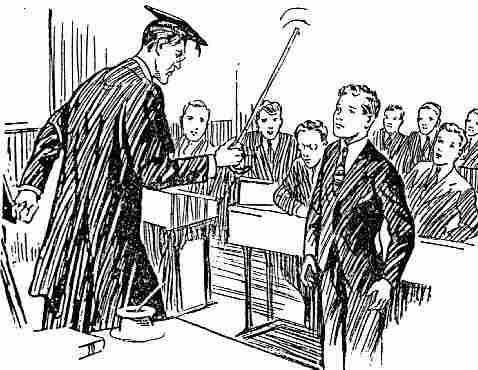Know more about the Corporal Punishment in India

Corporal punishment means punishment that is physical in nature. Law permits physical forms of punishment to be awarded and executed, only in case of crimes (and not in civil wrongs) and that too by an appropriate authority duly constituted in accordance with the prescribed laws of the land.
Such laws have never been and never will be ‘OKAY’ to be exercised upon children.
The acceptance of daily violence is an indicator of children’s status in our societies as ‘mere possessions’. Every child deserves equal respect for their human dignity and physical integrity. Ending corporal punishment has to be a common goal for us as a society because the effects of these punishments on a child penetrates deep into them and is a root cause of many problematic behavioural functioning when they grow up!
Physical Corporal Punishment can include (Although there are other questionable forms can also take place):
- Thrashing by the perpetrator using hands, legs or any other object, Scratching the body part of the child, Pinching him or her, sinking one’s teeth into him or her, grabbing the child by the hair, spanking the child with the hand or using an object like a belt, stick, a pair of shoes, etc.
- Making the children stand in an uncomfortable position like making him stand on a bench with his hands raised, making him hold his ears through his legs for a prolonged period, making him kneel on the ground, etc.
- Making him staying back in the recess or after school or not allowing him to play in the games period.”
Mental Corporal Punishment refers to any non-physical infliction of harm that takes a toll on the class performance as well as cognitive well-being of a child. It includes, but is not restricted to the following things:
- “Belittling the child in front of his classmates that in-turn lowers his/her dignity.
- Scolding the child and often referring to him with humiliating adjectives instead of calling him or her by his or her name.
- Punishing a child for his poor academic achievements and being indifferent that the child may actually be suffering from some sort of a learning disability which makes him a slow learner.
- Constantly comparing the child with his or her peers in the hope that this comparison would motivate the child to do better.
- Imitating a child with a speech disorder like stammering.
A 1998 study by Murray A. Straus and Mallie J. Paschall, titled "Corporal Punishment by Mothers and Child's Cognitive Development," revealed that children who were spanked were less able to keep up with the cognitive development level expected for their age. It can even lower their IQ.
Spanking can reduce a child's brain's grey matter, which is a crucial since it influences learning abilities.
Children who are physically punished can be impaired emotionally as well. Children who are verbally or physically abused are more likely to show psychological disturbances.
Physical punishment that is considered child abuse can lead to low self-esteem, brain damage, attention disorders and substance abuse, states the U.S. Department of Health and Human Services. It can lead to poor social skills, anxiety and depression when children reach adulthood.
Memory loss and likeliness to engage in promiscuity later in life, are two major repercussions of corporal punishment. Studies have shown that adverse childhood experiences have a correlation with brain damage, which is caused by swelling in the affected brain.
This brain swelling can lead to two issues, the first being long term memory loss, and the second being the formation of an abnormal adult brain later in life. Other research suggests that adverse childhood experiences have a correlation between teen sexuality and their likelihood to engage in promiscuity. The data shows that teenage girls are 40 percent more likely to become pregnant, and 25 percent more likely to have intercourse by age 15 if they suffer a combination of abuse.
Surveys:
- A survey conducted in Mumbai by the Podar Institute of Education between February and May 2017 involving 700 teachers (350 each in private and government schools) found around 50% of teachers in private and government schools reported shaming students to discipline them. Around 45% of teachers in government schools and 52% in private schools reported hitting children to discipline them – these figures have reduced since the institute’s 2015 survey, which found 83% of teachers in government and 58% in private schools used physical punishments to discipline students.
- The ‘Play It Safe’ opinion poll conducted by UNICEF, NINEISMINE and Mumbai Smiles, involving interviews with almost 5,000 children across Maharashtra, found children in rural areas experience more physical punishment at home than those in cities and towns: three out of five children in rural areas and two in five in urban areas were slapped, forced to stand outside their homes, locked in a room or had their ears pulled as punishment. Of the rural children interviewed, 57% said they were slapped (compared to 43% of urban children), 66% had ears pulled by elders (compared to 34% of urban children) and 55% were locked in a room (compared to 45% of urban children). The survey also found children in joint families experienced more violence than those in nuclear families or single parent families.
- A survey conducted in Mumbai and Bengaluru by Early Childhood Association (ECA) found on average 37% of parents threaten to hit their children, 66% hit their children, 15% sometimes hit their children and only 19% said they do not hit their children. Of those that do hit their children, this is most commonly done by both parents (76%), followed by mothers (18%), and least often by fathers (7%). After hitting the child, 53% of parents feel bad and so hug the child and/or promise a gift, 12% say sorry to the child and 36% do nothing. On average, 80% of parents said hitting has not helped to improve the child’s behaviour and so now they must hit more; 11% said hitting has improved the child’s behaviour and 9% didn’t comment.
There are many acts and conventions which protect the child from corporal punishments. All sorts of punishment including sexual assault are harmful to the child. Currently, there’s no statutory definition of corporal punishment of children in Indian law.
(A)Right to Education Act, 2009
As per the Right to Education Act, 2009, corporal punishment could be classified as physical punishment, mental harassment, and discrimination. Section 17 of the Act prohibits physical punishment and mental harassment to the child. And it states that no child is going to be subjected to physical punishment and mental harassment.
It is also given under this section whoever contravenes the above-mentioned provision is going to be at risk of disciplinary actions under the service rules applicable to such person. Sections 8 and 9 of The Right to Education Act place an obligation on the Government and also the agency to “ensure that the child belonging to weaker section and also the child belonging to the disadvantaged group aren’t discriminated against and prevented from pursuing and completing elementary education on any grounds.
(B) Juvenile Justice (Care and Protection of Children) Act, 2015
As per the Act, the child is any individual below 18 years of age. The Act defines corporal punishment as subjecting of a toddler by a person to physical punishment that involves the deliberate infliction of pain as a penalty for an offence or to discipline or reform the child.
*Here, Committee means Child Welfare Committee and Board means a Juvenile Justice Board.
Section 82 deals with the provision of corporal punishment. And it states that any person in charge of or employed in a childcare institution, who subjects a child to corporal punishment to discipline the child, shall be liable, on the primary conviction, to a fine of ten thousand rupees and for each subsequent offense, shall be responsible for imprisonment which can be three months or fine or with both. If an individual is convicted for corporal punishment, then he shall even be responsible for dismissal from the service. Also, the law will debar him from working directly with children.
In case the management of the institution where the corporal punishment is reported doesn’t cooperate with any inquiry or suits the orders of the Committee or Board or Court or government, the person accountable of the management of the institution shall be responsible for punishment with imprisonment for a term not less than three years and shall even be liable to fine which can reach one lakh rupees.
(C)Relevant Constitutional Provisions
Our constitution has also safeguarded the rights of the children. Article 21 and Article 21A of the Constitution of India which protects the right to life and dignity includes the right to education for children up to 14 years of age. Corporal punishment interferes with a child’s right to education because the fear of corporal punishment makes children more likely to avoid school or to drop out altogether.
Article 39(e) directs the State to figure progressively to make sure that “the children of tender age not abused”. Article 39(f) directs the State to figure progressively to make sure that-
“children are given opportunities and facilities to develop healthily”.
Apart from the above,
The National Commission for Protection of Child Rights (NCPCR) that was set up in March 2007 under the Commissions for Protection of Child Rights (CPCR) Act, 2005, an Act of Parliament (December 2005) also ensures that all Laws, Policies, Programmes, and Administrative Mechanisms are in consonance with the Child Rights perspective as enshrined in the Constitution of India and also the UN Convention on the Rights of the Child.
(*NOTE- ‘Child’ is defined as a person in the 0 to 18 years age group.)
The Commission visualizes a rights-based perspective flowing into National Policies and Programmes, along with nuanced responses at the State, District and Block levels, taking care of specificity and strengths of each region.
The Commission sees an indispensable role for the State, sound institution-building processes, respect for decentralization at the local bodies and community level and larger societal concern for children and their well-being.
On a personal level, we should work towards ending corporal punishment whether in schools or homes. It is not acceptable whether it is exercised by teacher or parents. We must sensitise and equip teachers and parents in positive discipline techniques instead of punitive discipline.















































